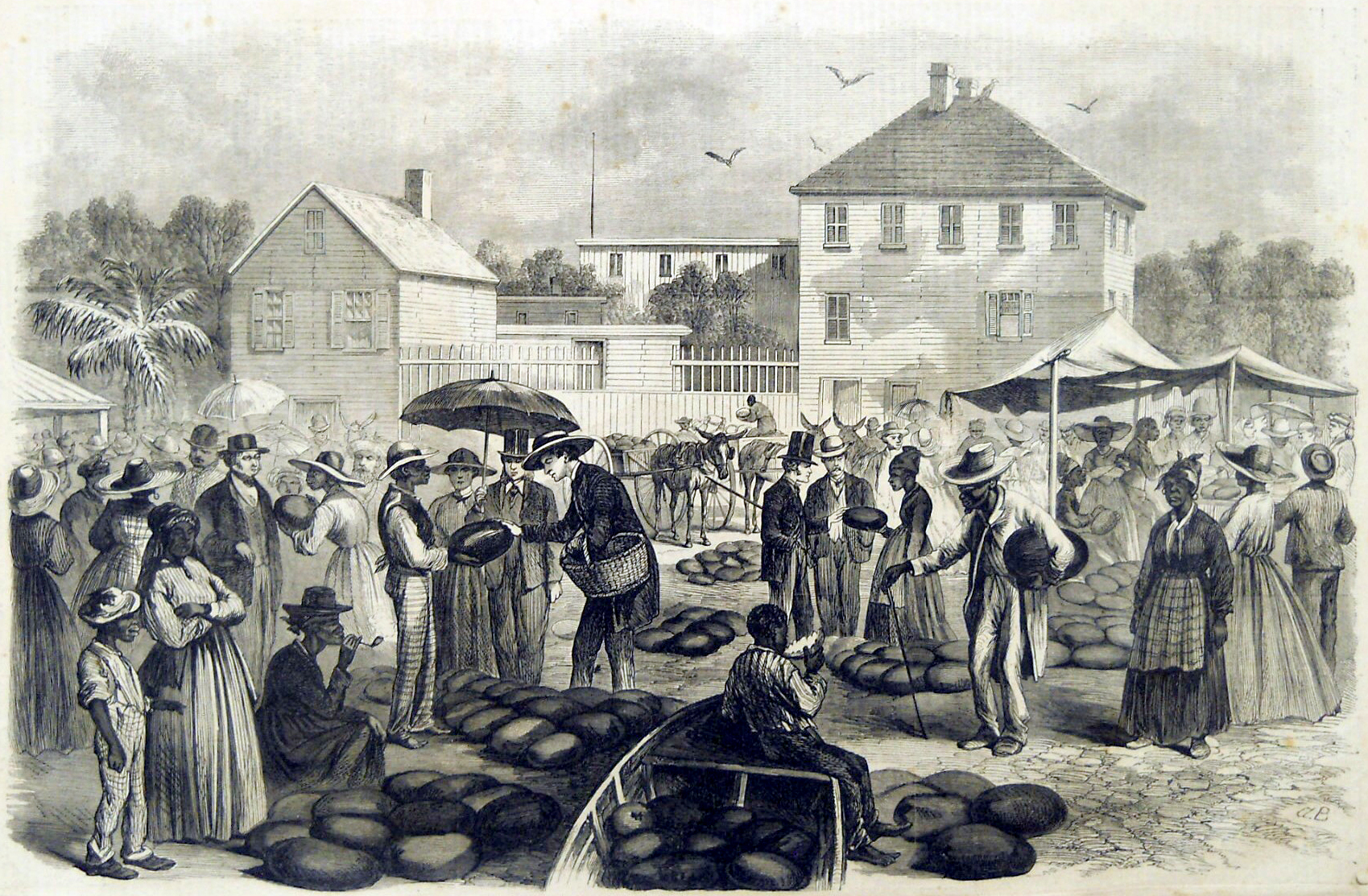On March 2, 1867, Congress overrode President Andrew Johnson’s vetoes and passed a series of Reconstruction acts which would, among other things, establish new governments in the ex-Confederate states based for the first time on universal male suffrage. The first step in this process involved the electing of white and black male delegates to conventions that would write new state constitutions establishing the legal basis for these governments. Sensing this unprecedented political opportunity, African Americans gathered in mass meetings throughout the South to support Congress’s action and to plan their own agenda. One of the earliest of these meetings took place in Charleston, South Carolina on March 19, 1867. At the conclusion of the meeting Rev. E. J. Adams, a leader of the Charleston black community gave the address below. in Charleston, called for the adoption of the report and delivered the address below.
Fellow Citizens: These are revolutionary times. For many years a contest, terrible in its nature, has been waged between despotism and republican principles, between freedom and slavery, until finally we behold the genius of republican liberty bearing its escutcheon upon the threshold of the capitol of every nation, waving its banner in triumph over every continent, sea and ocean. The sacred fire pent up in the bosom of the Italian nation, like the fires of Vesuvius, hath recently burst forth in all its sublimity, scattering its enemies and unshackling itself from that despotism which trampled it under its feet for nearly two centuries. Russia hath given freedom to over thirty millions of serfs, and Germany hath recently extricated itself from the despotism of Europe. We find today Canada struggling for liberty, and Ireland too is endeavoring to grasp the flag of liberty. So, too, with regard to our nation. The little leaven that was planted in this country when the government was founded has succeeded in permeating itself through every fiber of this great body politic, and now the flag that once floated over four millions of slaves, today waves in triumph over more than thirty millions of freemen. The bloody crimson stripes of that banner, once emblematic of the bloody furrows ploughed upon the quivering flesh of four million of slaves, today is emblematic of the bloody sacrifice offered upon the altars of American liberty.
We owe a debt of everlasting gratitude first, to Almighty God; second, to the Congress of the United States for the boon of freedom which both the white man and the black man today enjoy. We thank God because He has overruled the desires, the intentions and the will of men. When our war first broke out, it was the idea even of the Republican party, and even of the most radical of that party, that slavery should be confined to where it then existed; that it should have no further advancement, or be introduced into any of the territories shortly to become states. But the overruling hand of Providence, whose ways are in the whirlwind, brought good out of the wind, and today we can say, as Joseph said to his brethren, “As for you, ye meant evil unto me, but God meant it unto good to bring to pass that which has this day saved much people alive.”
These resolutions vindicate universal suffrage, for which, thank God, we are in the enjoyment of today. I vindicate universal suffrage, first, because of a man’s volition. I am in favor of universal suffrage, upon the ground that every man is endowed with a certain degree of volition, having the right to choose or refuse that which is good or evil; that he has the right to choose the God whom he will serve, and if a man may choose the God he wishes to serve, has he not an equal right to choose the ruler that shall rule over him?
Some are opposed to universal suffrage on the ground that a black man is not capable of exercising that right with judgment. But let me tell you that all men may be led instinctively to do that which is right, or choose the wrong. Those men who are led instinctively to support the liberty of the country in the time of war by placing the ballot box in their hands, will also be led to support the right in the time and hour of peace. Universal suffrage is the only reward that can be given for the long years of slavery and disfranchisement of the now colored citizens of the United States.
Universal suffrage is compatible with the genius of our Republic. This could not be a republic in every sense of the word unless universal suffrage is accorded to all men alike. The meaning of republicanism is that all men alike have the right to enjoy the privilege of the ballot box.
Again, a perfect Union, justice, domestic tranquillity, the common defense, the general welfare, and the blessings of liberty cannot be secured without universal suffrage. It is the only means of defense for the illiterate and the poor. The educated, the rich and the wealthy have advantages over the poor, who must necessarily have some means by which their liberties and the blessings of republican institutions may be enjoyed.
Again, universal suffrage, universal education, an equal chance to acquire wealth, will fit the colored man for any position, social or political. I do not, however, wish to be understood that I advocate or wish for social equality. God forbid that. For some of my mean white drunken enemies may sneak into my house and marry my daughter.

